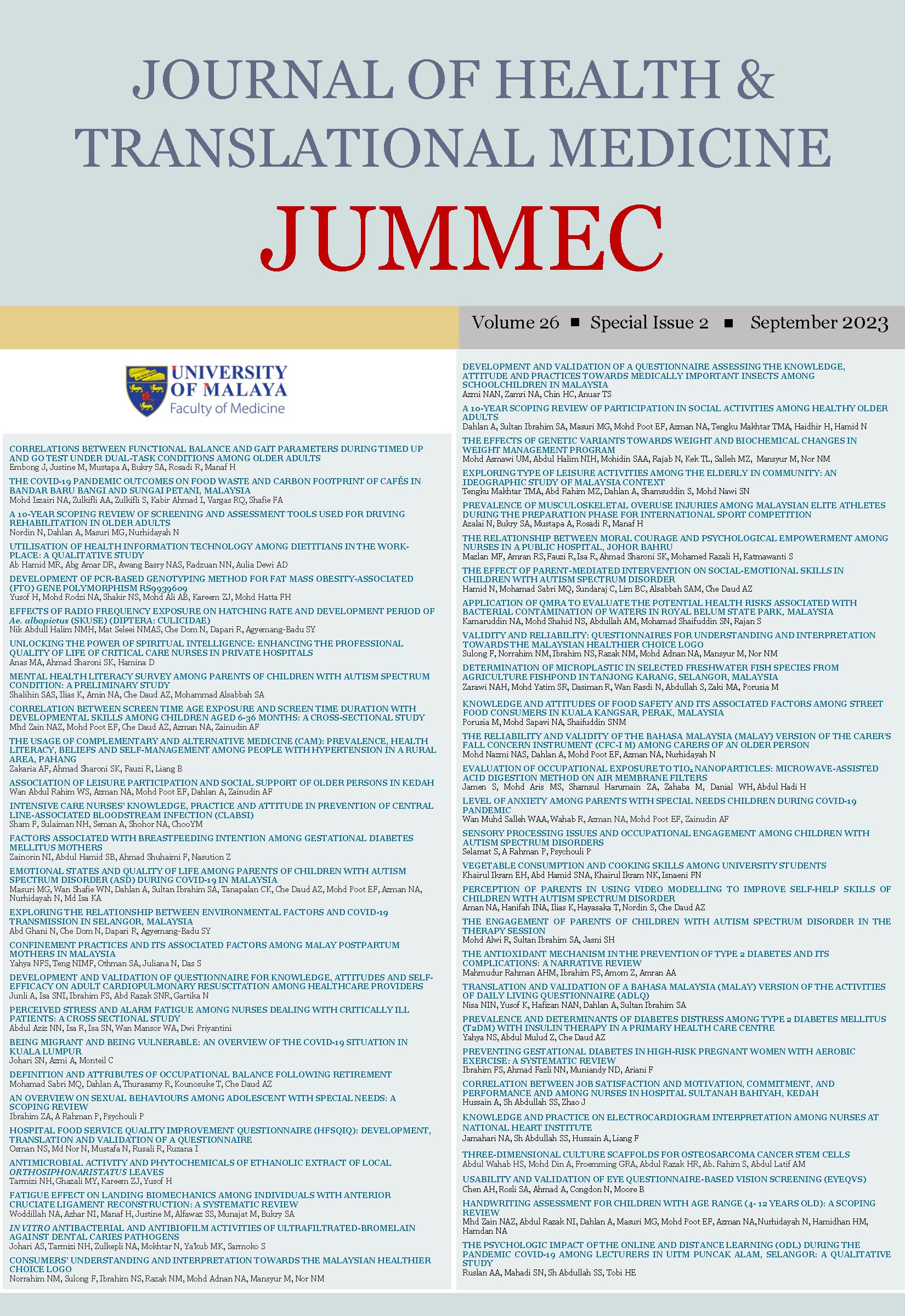UNLOCKING THE POWER OF SPIRITUAL INTELLIGENCE: ENHANCING THE PROFESSIONAL QUALITY OF LIFE OF CRITICAL CARE NURSES IN PRIVATE HOSPITALS
Received 2023-07-06; Accepted 2023-09-06; Published 2023-09-15
DOI:
https://doi.org/10.22452/jummec.sp2023no2.7Abstract
Caring for critically ill patients may have a negative impact on nurses’ professional quality of life (ProQOL), including
their compassion satisfaction (CS), burnout (BO), and secondary traumatic stress (STS), leading to nurses’ turnover
and concerns about the quality of care provided. Spiritual intelligence (SI) has been considered an important quality
in most professions in recent years, but there is limited research on its role in contributing to the ProQOL of nurses.
Therefore, it is crucial to understand the role of SI and its relationship with professional nurses’ ProQOL. This study
aimed to determine the level of SI and ProQOL among critical care nurses in private hospitals. Followed by examining the relationship between SI and demographic data towards the dimension of ProQOL. A multisite study using a cross-sectional design was conducted on 136 nurses working at three private hospitals in Malaysia from March 2021 to March 2022 via an online survey. Data was gathered using the Spiritual Intelligence Self-Report Inventory (SISRI-24) and the Professional Quality of Life Version 5 (ProQOL-5), and descriptive and multivariate analyses were run using SPSS. SI among nurses was found at moderate to high levels of (61.30 ± 12.95), and the majority nurses had a moderate level of CS (72.1%), BO (77.2%), and STS (75.0%). In regression, there was a statistically significant relationship between SI toward CS (β = 0.61, t = 9.79, p < 0.01) and BO (β = -0.31, t = -4.19, p < 0.01), suggesting that CS levels were significantly higher with increasing SI levels, and BO levels significantly reduced with increasing SI levels. Also, female nurses are predicted to have a higher level of BO than male nurses (β = 0.20, t = 2.77, p = 0.01). The study’s results suggested that a holistic strategic approach is needed to improve CS and mitigate the negative component of ProQOL (BO and STS) by utilizing SI. It is hoped that nursing education institutes and hospital organizations can contribute to cultivating SI among nurses with extra consideration given to female nurses.
Downloads
Downloads
Published
Issue
Section
License
All authors agree that the article, if editorially accepted for publication, shall be licensed under the Creative Commons Attribution License 4.0 to allow others to freely access, copy and use research provided the author is correctly attributed, unless otherwise stated. All articles are available online without charge or other barriers to access. However, anyone wishing to reproduce large quantities of an article (250+) should inform the publisher. Any opinion expressed in the articles are those of the authors and do not reflect that of the University of Malaya, 50603 Kuala Lumpur, Malaysia.


